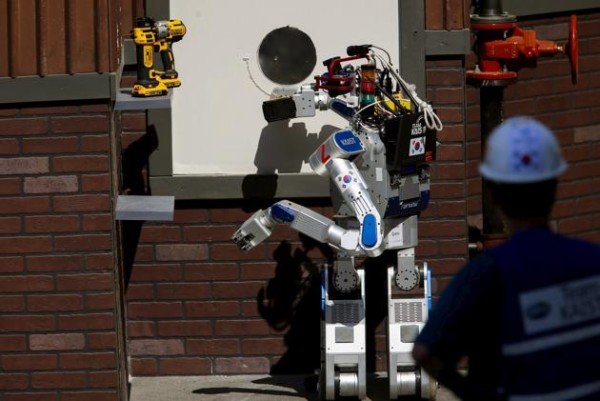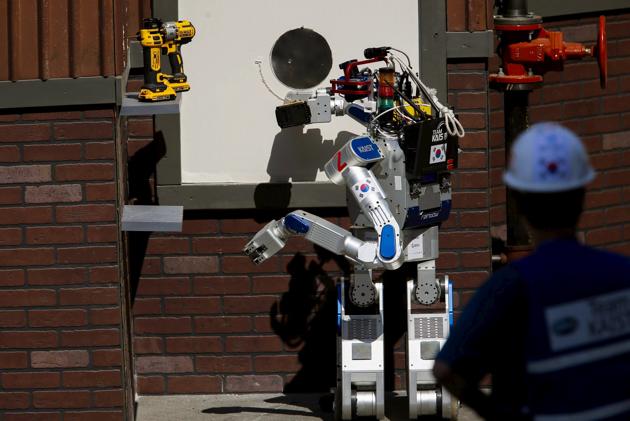South Korea’s robotics team KAIST has won the DARPA Robotics Challenge (DRC).
The DRC is a competition of robot systems and software teams vying to develop robots capable of assisting humans in responding to natural and man-made disasters.
The contest was designed to be extremely difficult.
Participating teams, representing some of the most advanced robotics research and development organizations in the world, are collaborating and innovating on a very short timeline to develop the hardware, software, sensors, and human-machine control interfaces that will enable their robots to complete a series of challenge tasks selected by DARPA for their relevance to disaster response.
The contest is a battle of robots on an obstacle course meant to simulate conditions similar to the 2011 Fukushima nuclear plant disaster.
The DRC Finals took place from June 5-6, 2015 at Fairplex in Pomona, California.
Team KAIST’s DRC-Hubo humanoid robot defeated 22 others to win the top $2 million prize from the US Department of Defense’s DARPA research unit.
The robots had an hour to complete a series of tasks, such as a driving a car and walking up steps.
The challenge involved a series of tasks for the robots to complete, somewhat autonomously, with intermittent connectivity with their operators to simulate real disaster conditions.
The challenge was the first where robots performed without being tethered and there were plenty of hard falls, soliciting groans and laughter from the crowds at the contest.
The other tasks the robots were set included getting out of a car, opening a door, drilling a hole in a wall, turning a valve and crossing rubble either by clearing a path or walking over it.
Team KAIST was the fastest, completing all the tasks in 44 minutes and 28 seconds.
Team IHMC Robotics came second, winning $1 million, and Tartan Rescue’s Chimp robot was third, winning $500,000, a day after taking a hard fall and then wowing the crowd by getting back up and back to work without human help.
The DRC Finals also included two mystery tasks over two days – on day one the mystery was pulling a lever and on day two it was pulling a plug out of one socket and inserting it into another.
Each team was given two attempts to complete the course.
There were meant to be 25 teams competing, but Japan’s team Hydra dropped out at the last minute because of an electronics accident during training.
A Chinese team was also due to compete but reportedly couldn’t get their visas in time.
